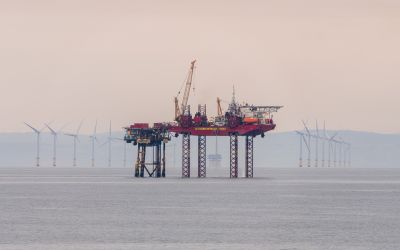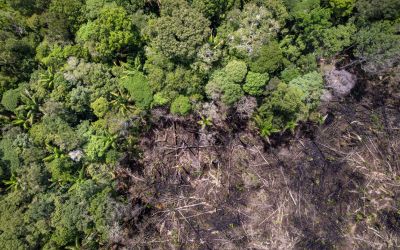Nestlé, Olam and Coca-Cola are the top companies in water management and disclosure of water risks
Non-profit investor coalition Ceres published its second Feeding Ourselves Thirsty report where it assessed forty two companies from the food, beverage and packaging sectors for their water management performance.

Non-profit investor coalition Ceres published its second Feeding Ourselves Thirsty report where it assessed forty two companies from the food, beverage and packaging sectors for their water management performance.
The companies were divided into packaged food, beverages, agricultural products and meat categories using the evaluation of publicly available data like 10-k forms, - annual reports giving a comprehensive summary of a company's financial performance, and sustainability reports.
During the evaluation process, Ceres attempted to assess their performance on water management in governance and strategy, direct operations, manufacturing supply chain and agricultural supply chain.
Some of the variables that the report was based on were among others water dependence, water security and managing freshwater supplies.
According to the report, management of water risks improved by 10 percent on average for each sector since its last report had been released in 2015.
The biggest improvements have been made in the packaged food and meat industry sectors, with the first having improved by 16 percent and the second by 20 percent.
The top-scoring brands in each category were The Coca-Cola Company in the beverage category with 72/100 final score; Nestlé in the packaged food category with an impressive 82/100 score; Olam in the agricultural products with 40/100 score and Smithfield Foods in the meat industry category with 33/100 score.
The Coca-Cola Company and Smithfield Foods were already holding the first position since Cere’s first report.
Nestlé surpassed the sustainability champion Unilever, which held the winning position before, as the latter scored 73/100.
The worst score was awarded to Monster Beverages, which received zero points, down from one point in 2015.
According to Ceres, the companies that received the lowest scores are the ones with little or no transparency with little data on sustainability performance available.
Eliza Robert, Co-Author of the report and lead of Cere’s agricultural water stewardship programme said: "Water management is an imperative for companies like never before”.
"As water scarcity and pollution continue to increase, corporate leaders must waterproof their business to protect and sustain water supplies”.
Mrs Robert explained that the demand for the report came from Cere’s investor network, worth trillions of dollars, who ask for data to help forecast corporate risk exposure and improve their risk management performance.
She said: "Investors need to know that we are coming to the end of cheap, plentiful water. It will change expectations for quarter-to-quarter growth and companies need to radically rethink their water risks”.
According to the report, some of the water risk drivers are climate change, growing competition, weak regulation, failing infrastructure and water pollution.
Access the full Feeding Ourselves Thirsty report will all the data on company scores and key findings here.
Mindy Lubber, Chief Executive Officer and President of Ceres will be the moderator of the ‘Expansion of Green Portfolios’ discussion during next week’s Sustainable Innovation Forum, on 19 September in New York. To find out more about the high-level conference click here.






